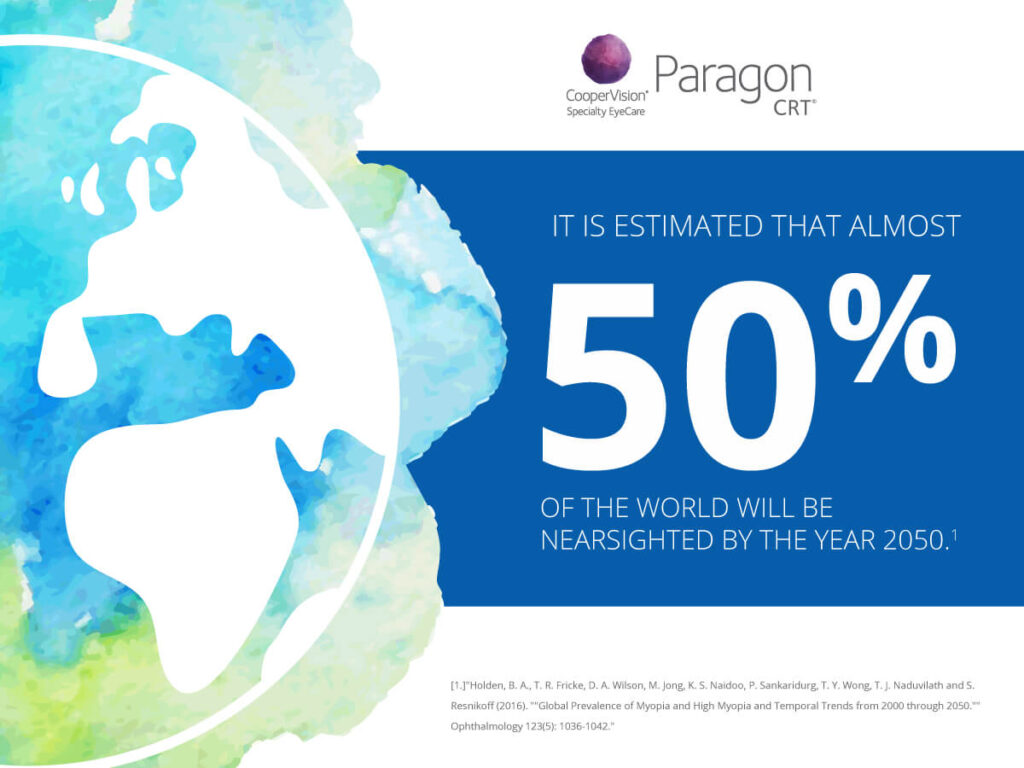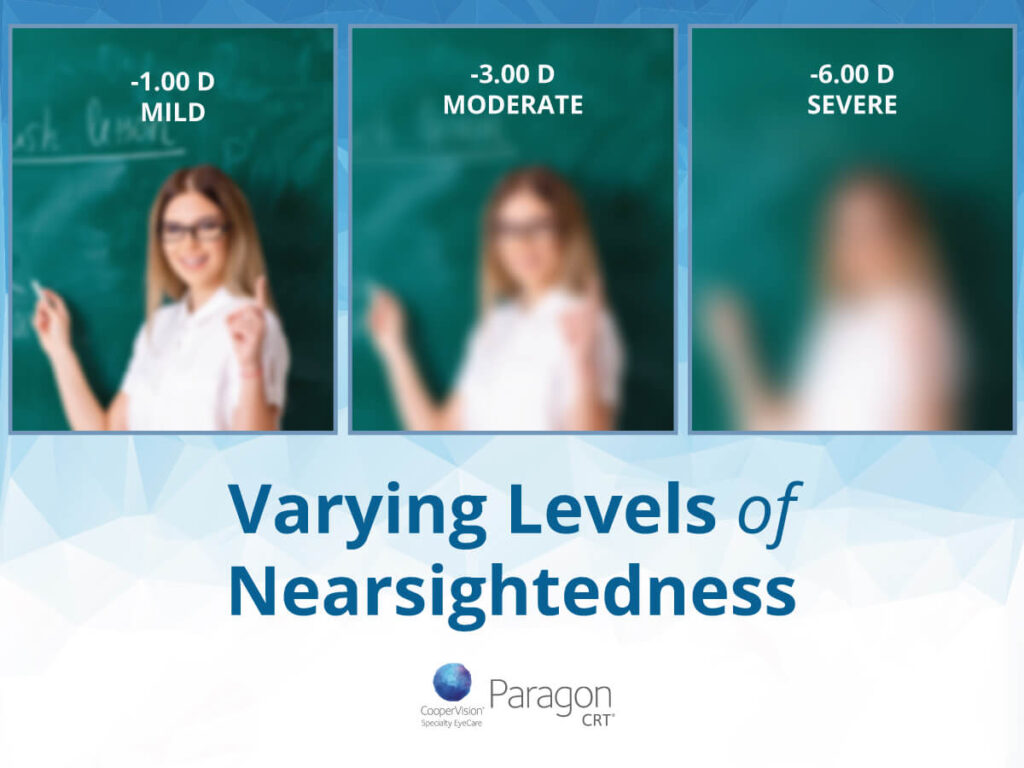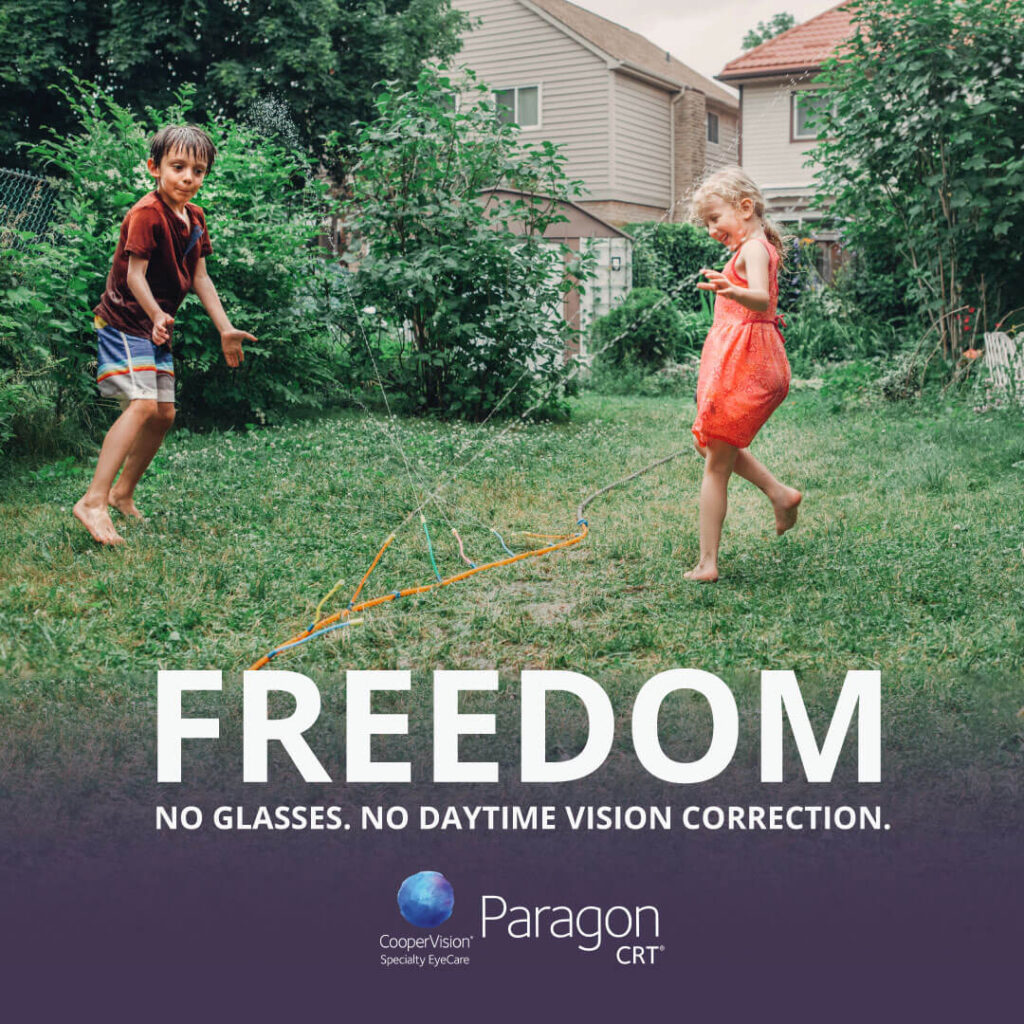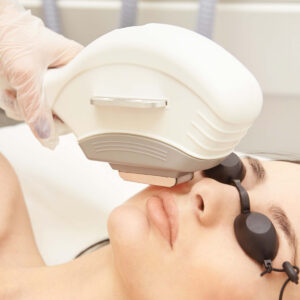What is Myopia?
Myopia or nearsighedness occurs when the eyeball is elongated such that light focuses before it reaches the retina. Traditional treatments for myopia include eyeglasses and daytime contact lenses.
(Word Trivia: The word “Nearsightedness” confuses everybody. “Does it mean I can’t see far or near?” … It took me until the 2nd year of Optometry school to realize the word actually says what it means. Near-sighted people have sight at near. They see things great up close easily but are blurry far away.)

What Causes Myopia to Get Worse?
When I got out of school, we were taught that myopia progression was the result of genetics and bad luck! We knew that every year kids would come back needing stronger and stonger prescriptions … until they look like “coke bottle glasses.”
Genetics still are a major factor. If mom and/or dad are nearsightedness, their children have a high probability of being nearsighted. But myopia is becoming more and more prevalent, even in families where mom and dad are not myopic.
New studies indicate that wearing glasses and most daytime contacts actually contributes to the progression of myopia because spectacle and daytime contacts overfocus light in the peripheral retina which is a stimulus to the eye to elongate.
Some experts also point to increases in screen time as a possible culprit.
So What is Myopia Control?
Myopia control is best referred to as “myopia management.” Optometrists and ophthalmologists currently employ three main strategies to “control” or reduce the rate of myopia progression. They include overnight ortho-k lenses, multifocal daytime soft contact lenses, and atropine therapy.
- Ortho-K, using such designs as iSee, Dreamlens, and CRT retainer lenses, corrects vision while the child sleeps. Ortho-K corrects the vision of the central cornea without altering the peripheral cornea, resulting in less peripheral retinal defocus, less elongation of the eye and less progression. Ortho-K has been shown in multiple studies to slow myopia rates of progression by 50 to 80%.
- Daytime multifocal soft contacts mimic the optical effects of ortho-K and can also slow progression of myopia.
- When eyeglasses are preferred, we presribe dilute atropine eye drops, which have been shown to slow progression by 50%.

Worldwide Interest in the “Myopia Epidemic”
As a member of the American Academy of Orthokeratology and Myopia Control (AAOMC), I have enjoyed the privilege of attending multiple international meetings with leading researches in the field of myopia management. The things I learned completely changed my perspective and the way I practice.
At Progressive Eye Care in South Jordan, we agressively prescribe the latest approaches to limit the progression of mypia for our young patients.
Why is Myopia Such a Big Deal?
When we prevent children from developing severe myopia, we reduce their risk of macualar degeneration, glaucoma, and retinal detachments as adults.
When we keep children’s prescriptions from getting so high, we help them be better candidates for Lasik in the future. (If myopia is bad enough, some patients are no longer candidates for laser surgery.)
How Can I Keep My Child’s Nearsightedness from Getting Worse Every Year?
Coke-bottle glasses need not be in your child’s future. The best next step is to schedule a consultation with one on of our doctors. We will happily evaluate your child’s prescription history and recommend a treatment program that best meets their visual and lifestyle needs.
P.S. A Tip for Parents: Play with your kids ourside! Studies have shown a lower incidence of myopia among children who play regularly outdoors. Exercise, family time, fun, sunshine, bonding, less screen time, less nearsightedness, and more happiness are all welcome potential “side effects” of playing outside with your kids!




